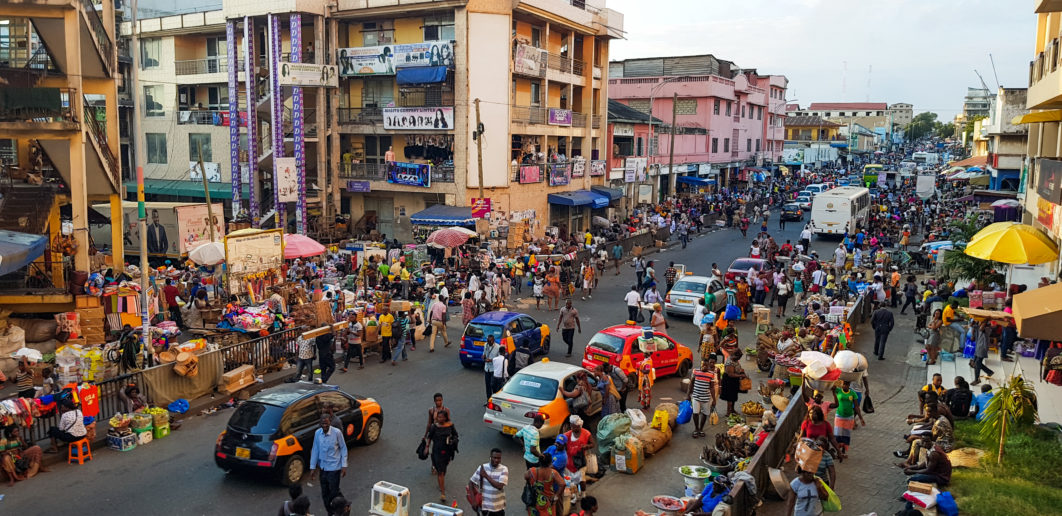
While Nigerian businessmen have been struggling to maintain cordial relationship with the Ghanaian local authorities over claims of eroding their markets, the border closure by the Federal Government, one year after, is believed to have infuriated neighbouring countries that had earlier served notice of eviction to Nigerians operating in their environment.
The President, Nigeria Union of Traders Association, Ghana (NUTAG), Chukwuemeka Nnaji, had earlier told The Guardian that despite the provisions of the ECOWAS protocols, Ghana’s use of its GIPC Act 865, Section 27 (1a) of 2013, flouts the provisions on rules of engagement.
He noted that while Ghana continues to enjoy the privileges conferred on ECOWAS citizens in the region, the government and its people continue to prohibit other citizens from doing the same in Ghana.
Recently, Nnaji decried Ghanaian authorities’ closure of shops owned by Nigerians doing business in the country.
He said that shops belonging to Nigerian traders in Accra were locked up by the Ghanaian authorities, who demanded cash payment of $1 million from them before the shops would be opened.
According to him, an inter-ministerial task force went around on August 10, to identify shops owned by Nigerian traders, and requested registration of business taxes, resident permit, standard control, and Ghana Investment Promotion Council (GIPC) registration.
“Most of our members do not have the GIPC registration, because it requires $1 million cash or equity, and they gave us 14 days within which to regularise.
“As of Thursday, they had moved to another area, and started locking up shops of Nigerian traders.
“Nigerian life in Ghana matters. This is the livelihood of Nigerians being destroyed by Ghanaian Authorities. This is not being perpetrated by a trade union, but Ghanaian authorities.
“They demanded that we must employ a minimum of 25 skilled Ghanaian workers, and must not trade in commodities that Ghanaian traders have applied to trade in,” Nnaji said.
But in an interview with Starr News, a Ghanaian publication, Head of Communications in the country’s Trade Ministry, Boakye Boateng, said it would be unfair of the Nigerian traders to complain of insensitivity.
He said the traders, who have been served notice for over a year, were pardoned in December, following the intervention of President Nana Akufo-Addo.
“It cannot be that we’ve been insensitive. If that is what they’re saying, I’ll be disappointed because I’ll rather say they have rather been unfair to us as a regulatory body, because we have given them more than enough time to the extent even the Ghanaians thought that the Ministry was not on their side or the Ministry wasn’t ready to even enforce law.
“So, it’s very surprising to me for them to say that we’ve not given them enough time. If you recall as far back as December last year, these shops were locked, the President intervened, and we asked that the shops be re-opened because the very law that gives GUTA the right to be the sole traders in our market, that same law requires that a certain group of people are those who can go and do law enforcement and not you, so allow us to do our work.
“They complied, the shops were opened. Since then we have given them an opportunity to regularise the document and submit it to us for verification, and that has not been done. Now, this exercise started from Abossey-Okai on Monday. Because we have never been to Abossey-Okai for this exercise, when we went there we did not just start locking shops. We went there, we inspected the shops and we gave them notice that in 14-days they should ensure that all their necessary documentation is complete. These people have served notices for over a year now.”
Representing the Ghana High Commission, Sintim Barimah Asare, at a recent forum, appealed for calm and understanding among operators, adding that his country remained committed to the ECOWAS treaty.
Noting that the Ghanaian Government seeks to protect its petty traders from undue competition, Asare said the GIPC law is for medium and large enterprises and not for micro businesses.
Representative of the Nigeria-Ghana Business Council, Ms Abiola Ogunbiyi, sought for understanding of the provisions of the ECOWAS treaty, adding that while provisions of the regional integration treaty presuppose that things are working, the reality is different.



